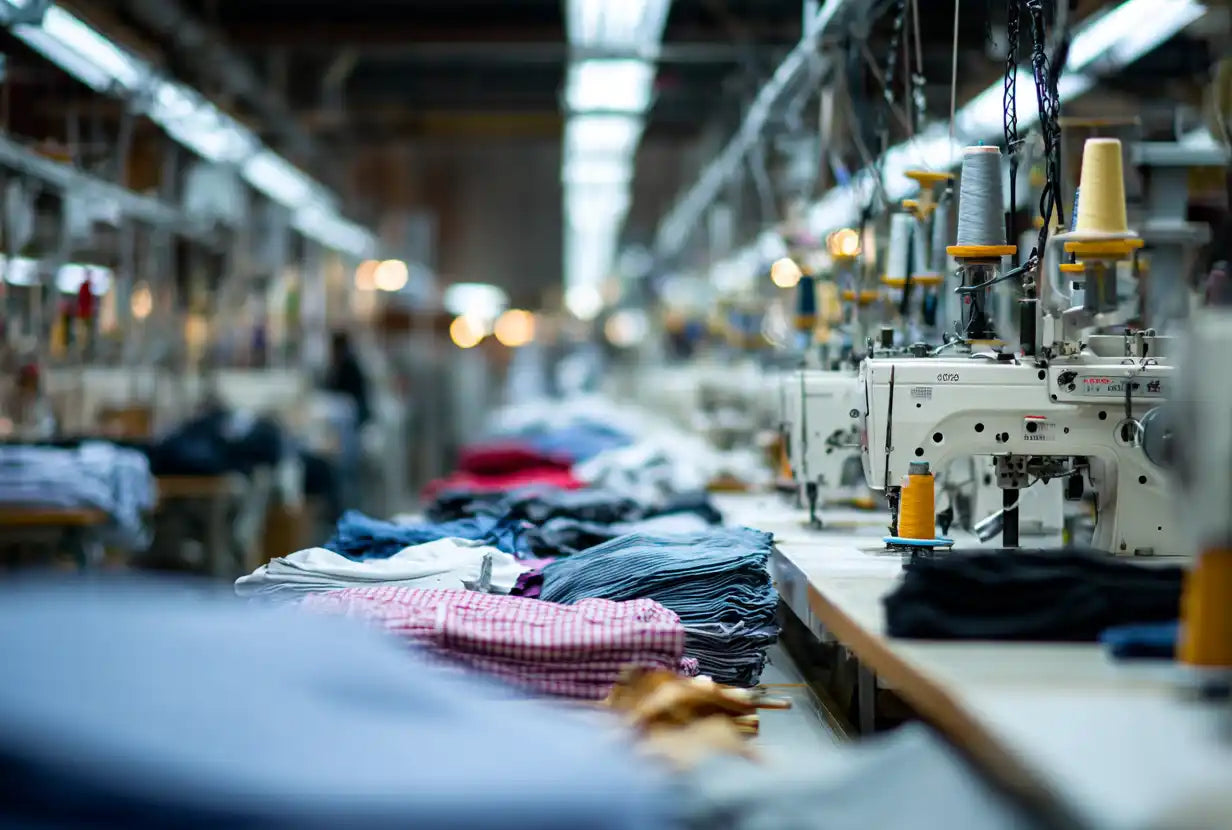Oversized T-Shirt: The Go-To Custom Apparel for Modern Brands
Why brands choose Portuguese-made oversized T-shirts for quality, sustainability, and scale
Oversized T-shirts evolved from niche streetwear into a mainstream format that brands, influencers, and businesses use as a flexible canvas for customization. This guide explains why manufacturing in Portugal, fabric choices, and tailored customization options make oversized tees a perfect product for modern brands.

2025 Market Insight & Quick Facts
Market snapshot: According to 2025 market analysis, oversized T-shirt demand is rising fast across Europe, led by younger demographics and streetwear trends. Global sales are projected to grow significantly through 2026, making oversized tees a strategic product for both direct-to-consumer and wholesale channels.
Key metrics brands track when planning production:
- Average global search volume for product terms: ~18,000+/mo.
- Standard fabric weights for oversized tees: 180–300 GSM.
- Typical MOQ when manufacturing in Portugal: 100–300 pieces for many suppliers.
- Average production lead time: 3–6 weeks for bulk production, 6–9 weeks total to EU delivery including sampling.
- Most requested colors: Black, White, and Earth tones.
- Top markets: EU, UK, USA.
Why Brands Choose Oversized T-Shirts for Custom Apparel
Oversized T-shirts are an adaptable product line item. Their broad appeal includes streetwear, corporate merchandise, and elevated athleisure. They offer a large print area, a contemporary silhouette, and healthy resale margins compared to standard-fit T-shirts.
Top reasons brands favor oversized tees:
- Unisex appeal: Oversized cuts fit multiple body types and reduce SKU complexity.
- Premium pricing potential: Brands can position heavyweight oversized tees at higher retail price points while preserving margin.
- Customization-friendly: Works seamlessly with screen printing, DTG, embroidery, appliqué, and specialty finishes.
- Perceived durability: Heavier fabrics and refined finishes increase perceived quality and reduce returns.
For further reading on which oversized fit, fabric, and cut best suits specific brand goals, see our guide Understanding Oversized T-Shirts: Which Fit, Fabric, and Cut Matches Your Brand?
Manufacturing Oversized T-Shirts in Portugal
Portugal is a prime manufacturing location for brands that prioritize quality, sustainability, and speed to European markets. The northern regions, including Porto and Braga, host a mature supply chain for jersey knitting, dyeing, finishing, and cut-and-sew production—traits that translate to consistent oversized T-shirt quality.
Key advantages of Portugal:
- Sustainability leadership: Many factories hold GOTS and OEKO-TEX certifications and follow strict EU regulations that reduce supply chain risk for eco-conscious brands.
- Geographic proximity: Shorter transit times to the EU and the UK compared with Asia, which reduces inventory lead time and logistics complexity.
- Skilled workforce: Centuries of textile knowledge combined with modern finishing technology result in superior hand-feel and durable construction—critical for oversized garments where drape and seams are highly visible.
- Scalability and flexibility: Portuguese suppliers can handle small test runs (100–300 pcs) and scale to larger retail orders while maintaining consistent standards.
Want a deeper dive into Portugal's production benefits for startup brands? Check out our articles: What’s the Best Clothing Manufacturer for Startups in Portugal and Clothing Manufacturers Portugal: Your Complete 2025 Guide.
Fabric Choices: How GSM and Material Shape Oversized Tees
Fabric selection determines look, drape, print outcome, and durability. Portuguese mills produce a wide range of jersey constructions well-suited to oversized silhouettes.
GSM recommendations by use-case:
- 180–200 GSM: Lightweight, breathable; ideal for summer collections and promotional runs where cost-efficiency matters.
- 220–250 GSM: Mid-weight and versatile; often the best balance for everyday streetwear that needs structure but still moves easily.
- 280–300 GSM: Heavyweight; premium drape and therapeutic structure for luxury streetwear and winter drops.
Material and blends: Combed organic cotton and recycled blends are common choices for premium oversized tees. Blends that include a poly component (for example, recycled polyester) can improve shape retention and increase print adhesion for DTG and screen printing.
For a practical comparison of blank T-shirt quality and fabric sourcing, see Premium Blank T-Shirts Portugal: Discover the 2025 Trends.
Customization Options: Printing, Embroidery & Cut-and-Sew
Customization is where brands create unique product value. Portuguese manufacturers offer end-to-end services from tech pack support to final finishing:
- Printing: Screen printing for bold, durable graphics; DTG for photographic detail; sublimation for all-over prints.
- Embroidery & appliqué: Adds texture and premium feel—popular for small brands seeking a premium mark without pushing to full cut-and-sew collections.
- Cut & sew adjustments: Options include drop shoulders, extended sleeve lengths, and modified necklines to achieve signature oversized fits.
- Finishing: Special washes, enzyme finishes, and color-dye techniques—Portugal’s finishing houses are known for consistent color fastness and quality.
Curious how to prepare your tech pack and artwork? Our Clothing Tech Pack Guide walks you through the critical elements to share with manufacturers.
Production Timelines, Costs & Logistics
Typical workflow for a custom oversized T-shirt production in Portugal:
- Fabric sourcing: 1–2 weeks to secure knitting/stock or place custom knit orders with mills.
- Sample development: 1–2 weeks for proto samples and minor revisions.
- Bulk production: 3–6 weeks depending on volume and finishing complexity.
- Total to EU delivery: 6–9 weeks including sampling, production, and standard logistics.
Estimated per-unit costs (Portugal, 2025 range): Entry-level cotton oversized tee: ~€3.50–€5.50; Mid-weight premium: ~€6.00–€8.00; Heavyweight organic: ~€7.50–€10.00. These ranges depend on fabric selection, dyeing, and applied customization.
Looking for guidance on calculating landed cost and MOQ tradeoffs? Our resource Low MOQ Clothing Portugal: A Startup's Guide to Small Batch explains cost optimization strategies for small brands.
Frequently Asked Questions (FAQs)
Why is Portugal considered a leading destination for oversized T-shirt manufacturing?
Portugal combines decades of textile expertise with modern knit and finishing technologies. Regions like Porto and Braga specialize in jersey fabrics and apparel finishing, and many factories carry certifications such as GOTS and OEKO-TEX. These attributes reduce supply chain risk, provide better quality control, and appeal to brands that prioritize ethical, EU-compliant production.
What makes low MOQ manufacturing in Portugal ideal for startups and growing labels?
Many Portuguese suppliers accept smaller minimum order quantities—commonly between 100 and 300 pieces—making it possible for startups to test designs and colors without large capital outlays. Faster sampling and shorter logistics to European markets also allow brands to iterate designs and refine their assortment quickly.
How does Portugal ensure consistent oversized T-shirt quality across runs?
Portuguese suppliers often integrate knitting, dyeing, and finishing steps within their network, enabling tighter quality control. This integrated approach helps maintain consistent color, shrinkage behavior, and seam durability—factors that are especially important for oversized fits where drape and fall are noticeable.
Which certifications should brands look for when sourcing oversized tees from Portugal?
Key certifications include GOTS for organic fiber content, OEKO-TEX Standard 100 for low-toxicity textiles, and SEDEX or other audits verifying ethical labor practices. Asking manufacturers for certificates and audit summaries is standard practice for brands with sustainability claims.
What GSM is best for premium oversized T-shirts?
For premium oversized tees, mid-weight (220–250 GSM) often provides the best balance between drape and durability. Heavyweight (280–300 GSM) is preferred for luxury silhouettes that need structure, while lighter GSM is best for summer and promotional pieces.
Why do brands prefer Portuguese cotton and jersey fabrics?
Portugal’s textile industry uses advanced knitting and finishing machinery that enhances softness, fabric stability, and colorfastness. Combined with EU-level regulatory standards, these mills consistently deliver high-grade materials suitable for premium and sustainable ranges.
Are organic and recycled blends durable enough for streetwear?
Yes—modern organic and recycled blends can be engineered for strength and longevity. Blends with a controlled percentage of recycled polyester improve performance while sustaining the eco profile; proper finishing techniques further enhance durability for printed or embroidered designs.
How does fabric choice affect print and embroidery outcomes?
Denser jerseys (250+ GSM) yield crisper embroidery and longer-lasting screen prints. Light-weight fabrics absorb inks differently and may show more surface texture after printing. Always request fabric swatches and sample prints before approving bulk runs.
What are the most popular customization techniques for oversized T-shirts?
Popular techniques include screen printing for bold graphics, DTG for photographic detail, embroidery for premium branding, appliqué for texture, and special puff or raised prints for a designer finish. Portuguese factories commonly support multiple techniques for mixed-run production.
Can I request custom cuts or pattern adjustments for oversized fits?
Yes. Many factories offer cut-and-sew services that modify neckline, sleeve length, shoulder drop, and hem finishes. These tweaks can transform a generic blank into a brand-defining silhouette.
How do embroidery and appliqué enhance brand value?
Embroidery and appliqué create a tactile, premium effect that elevates perceived quality. Minimalist, tone-on-tone embroidery is especially effective for premium streetwear brands that want a subtle but unmistakable stamp of quality.
What should brands finalize before production?
Brands should finalize their tech pack, approve fabric swatches, confirm print and embroidery placements, and sign off on pre-production samples. Clear documentation reduces revision cycles and minimizes the risk of costly misproduction.
Contextual internal links (selected resources)
To support decision-making and further reading, we recommend these contextual resources from our site:
- Understanding Oversized T-Shirts: Which Fit, Fabric, and Cut Matches Your Brand? — fit and cut guidance.
- Premium Blank T-Shirts Portugal — blank quality and sourcing trends.
- Clothing Tech Pack Guide — how to prepare your tech pack.
- Low MOQ Clothing Portugal — small-batch production strategies.
- Shop our T-Shirt collection — explore blanks available for customization.
Conclusion & Summary
Oversized T-shirts present an attractive product for modern apparel brands: they offer unisex appeal, strong customization potential, and resilience as a core SKU across multiple market segments. Portugal stands out as a manufacturing partner because of its reliable mills, sustainability credentials, shorter European lead times, and flexibility for low-MOQ production.
Actionable steps for brands launching oversized tee lines:
- Choose your target GSM and fabric composition based on desired drape and print methods.
- Finalize a detailed tech pack and request fabric swatches and pre-production samples.
- Consider working with Portuguese manufacturers for better control over quality, faster EU fulfillment, and access to sustainable certifications.
- Learn more about customizing your own apparel collection Ultimate White Label Guide.
If you’re ready to move from concept to production, visit our T-Shirt collection or read our step-by-step guides on working with Portuguese manufacturers in the Portugal manufacturing guide.
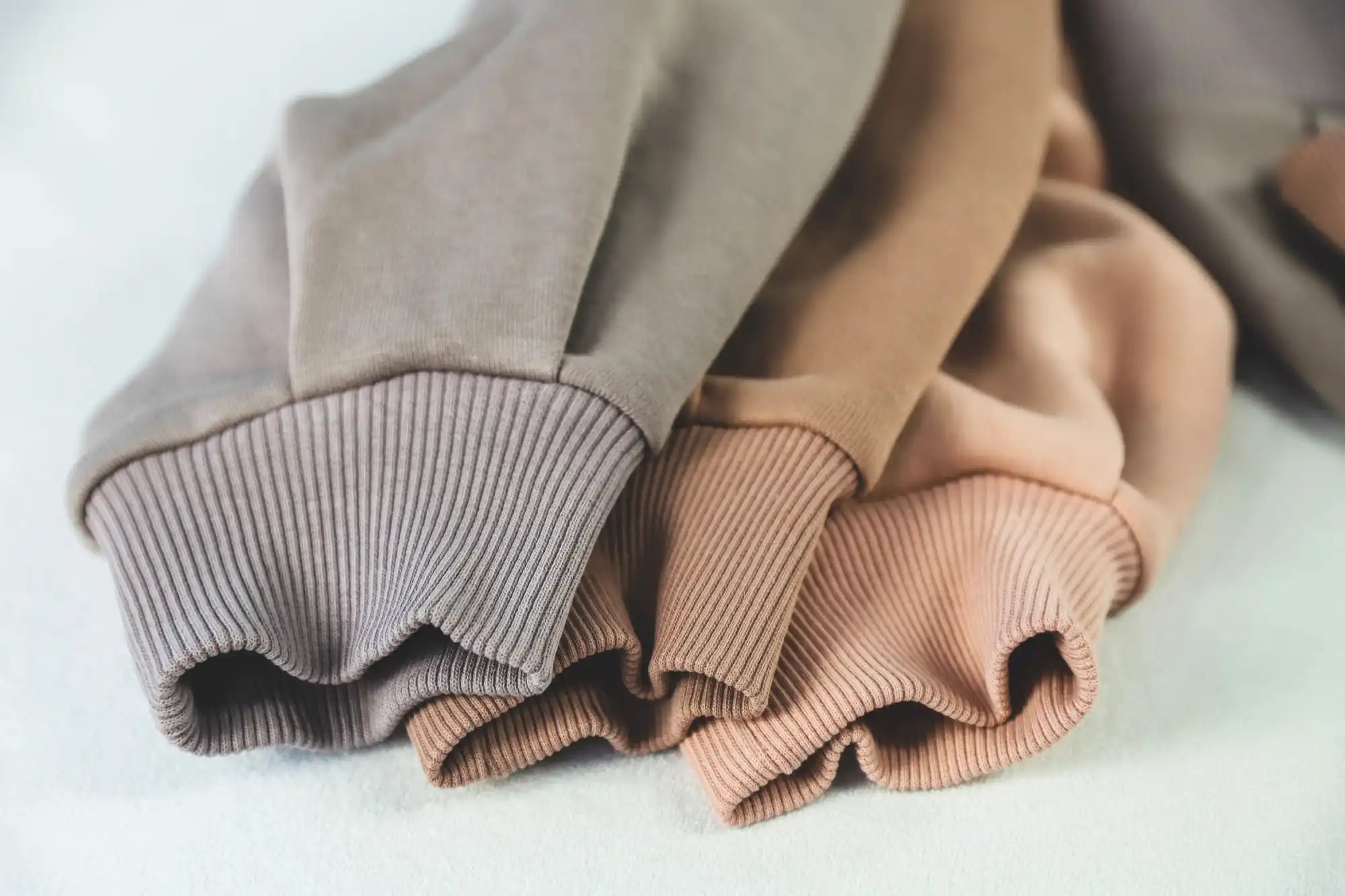
Materials & Fabrics for Clothing Production
Explore cotton, French terry, jersey, fleece, and sustainable blends used in premium apparel manufacturing.
LEARN MORE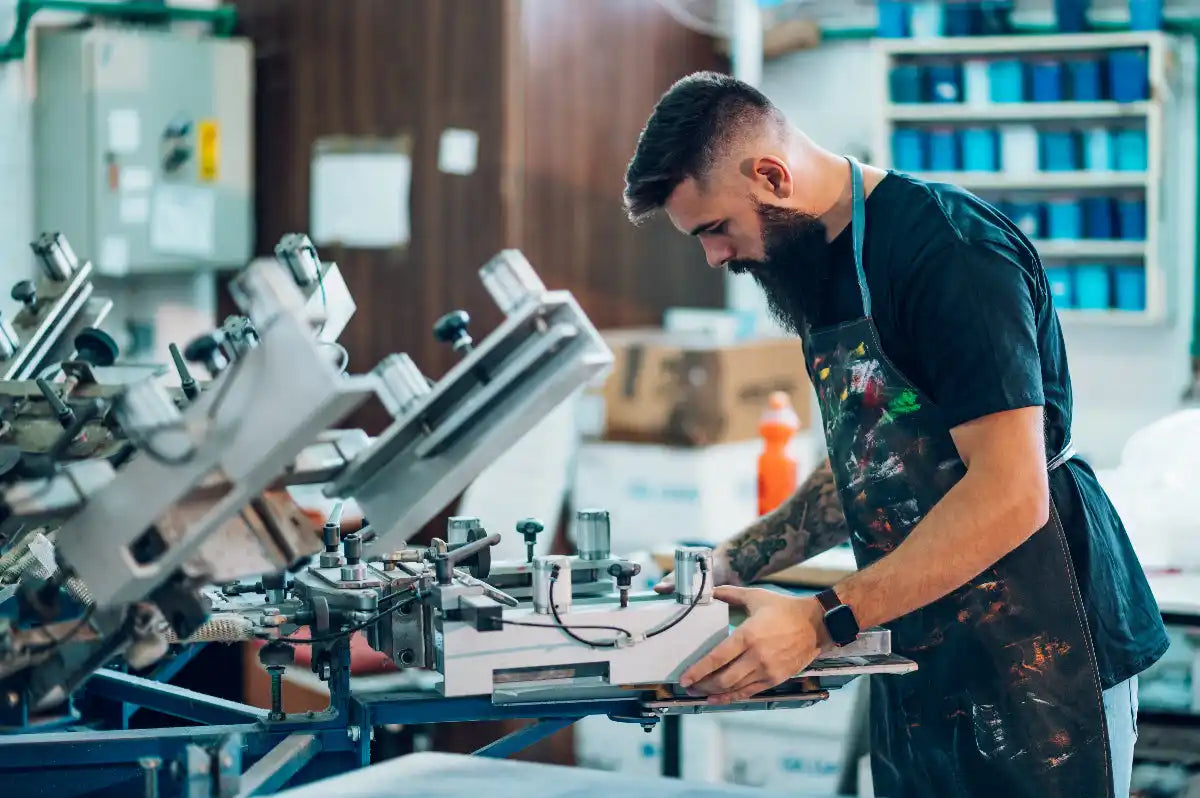
Printing Techniques for Apparel Production
Screen printing, embroidery, puff prints, and digital methods for custom clothing manufacturing.
LEARN MORE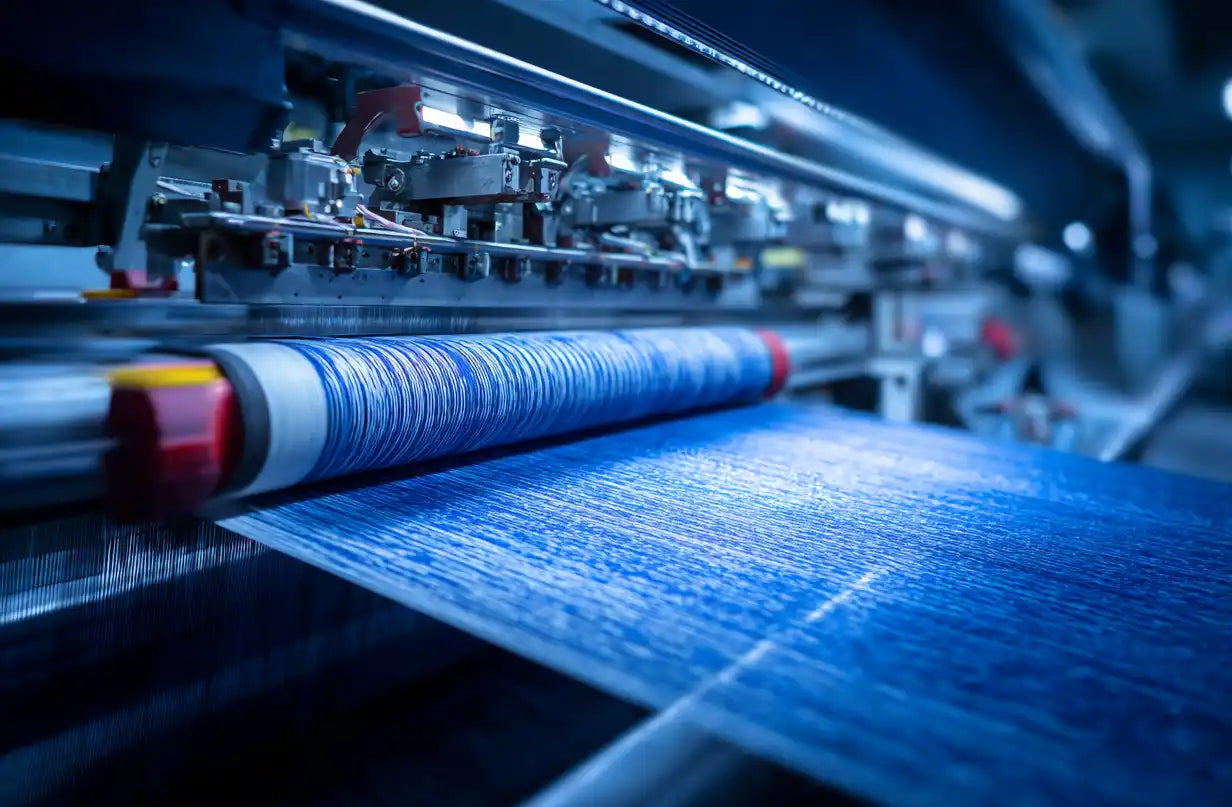
Dyeing Techniques in Clothing Manufacturing
Garment dye, pigment, acid wash, and stone wash finishes that create unique apparel designs.
LEARN MORE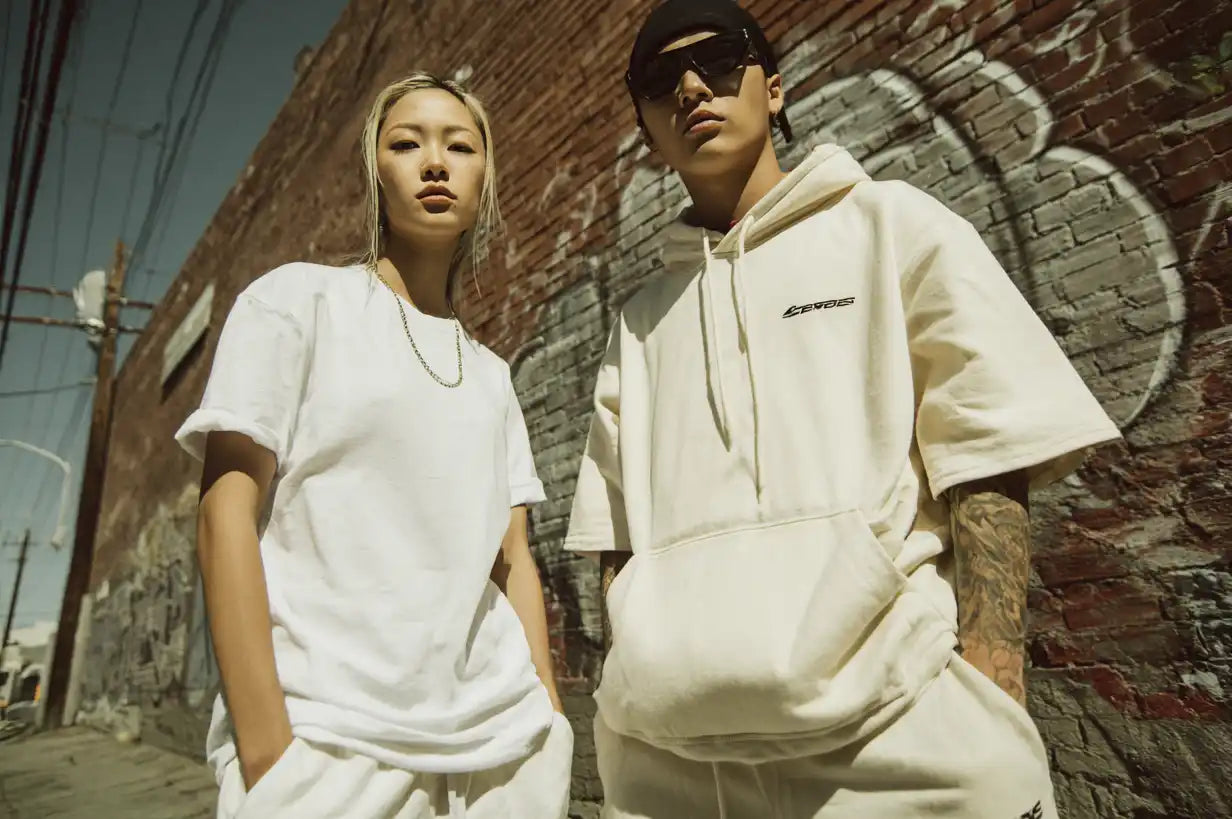
Popular Clothing Items for Custom Apparel
Hoodies, joggers, t-shirts, leggings, and biker shorts — essentials for every apparel collection.
LEARN MORE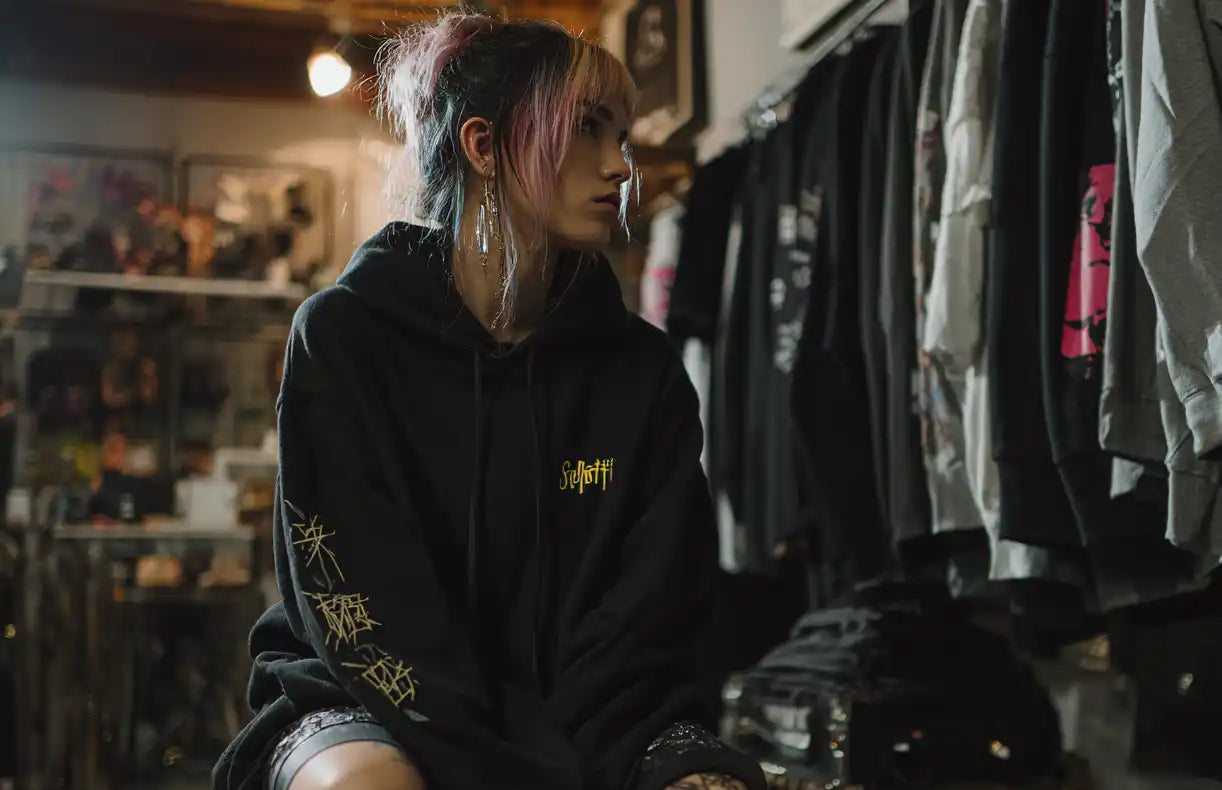
Trends & Designs in Modern Apparel
Oversized fits, streetwear influences, and activewear styles driving custom clothing production.
LEARN MORE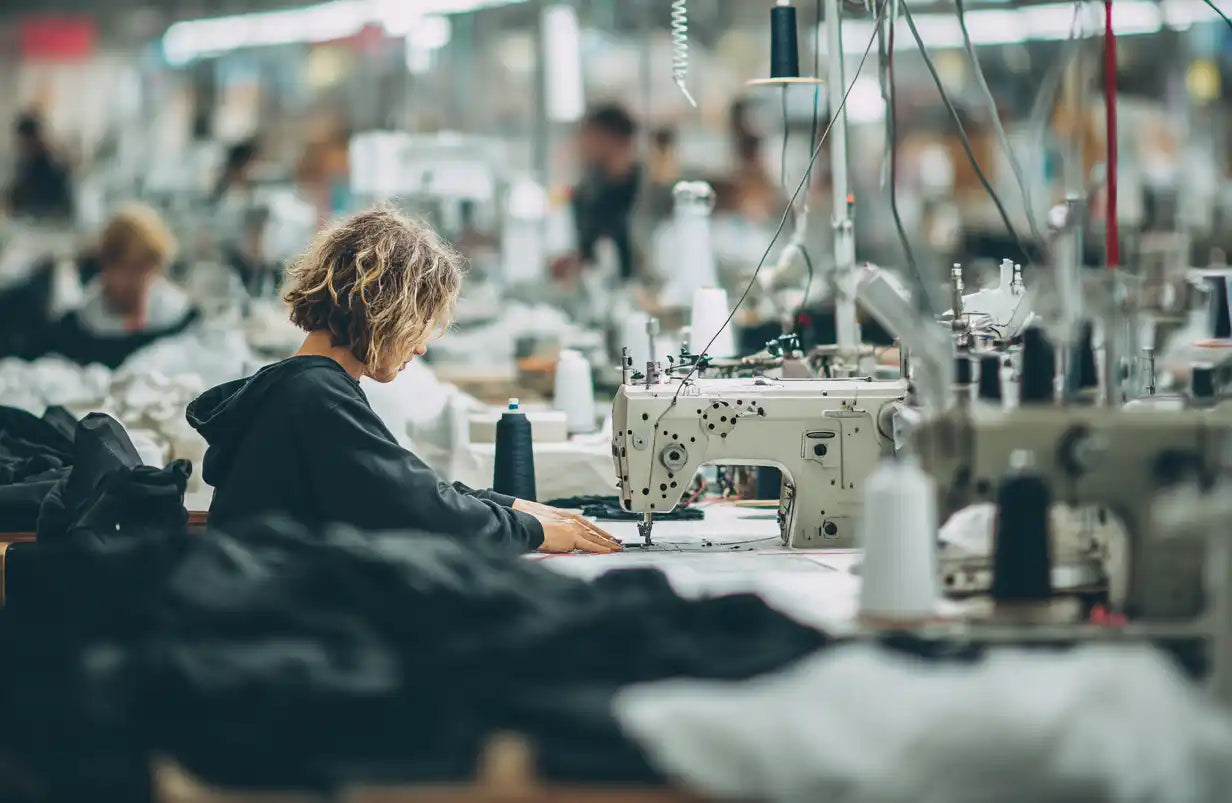
Sustainable & Ethical Clothing Production
OEKO-TEX® certified fabrics, organic cotton, and ethical apparel manufacturing in Portugal.
LEARN MORE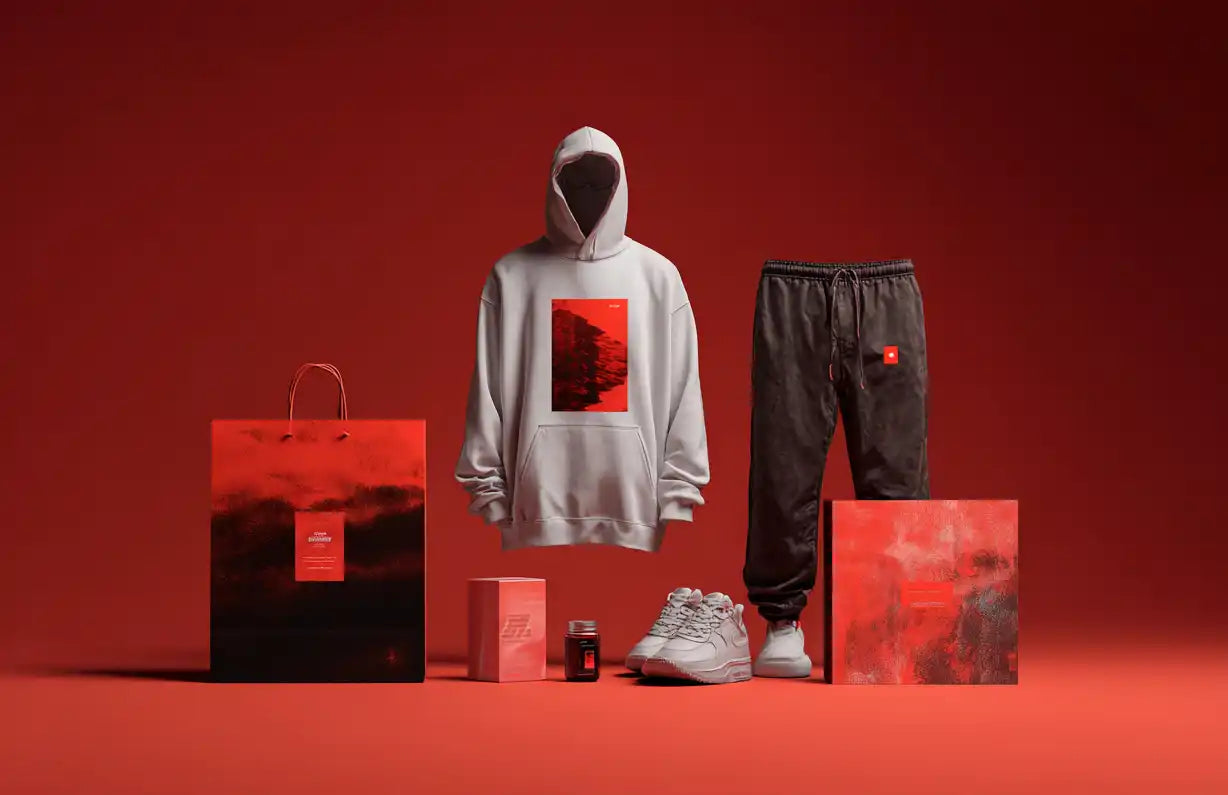
Essentials for Custom Clothing Production
Custom labels, packaging, and trims that elevate your apparel brand in production.
LEARN MORE
Resources for Custom Clothing Production
Startup guides, logistics support, and scaling strategies for apparel brands and wholesale clients.
LEARN MORE
Clothing Manufacturing Glossary
Explore a complete glossary of clothing and garment manufacturing terms
LEARN MORE
The Latest Clothing Industry Updates in 2025
Discover the latest news about important topics in the clothing industry in 2025,
LEARN MORE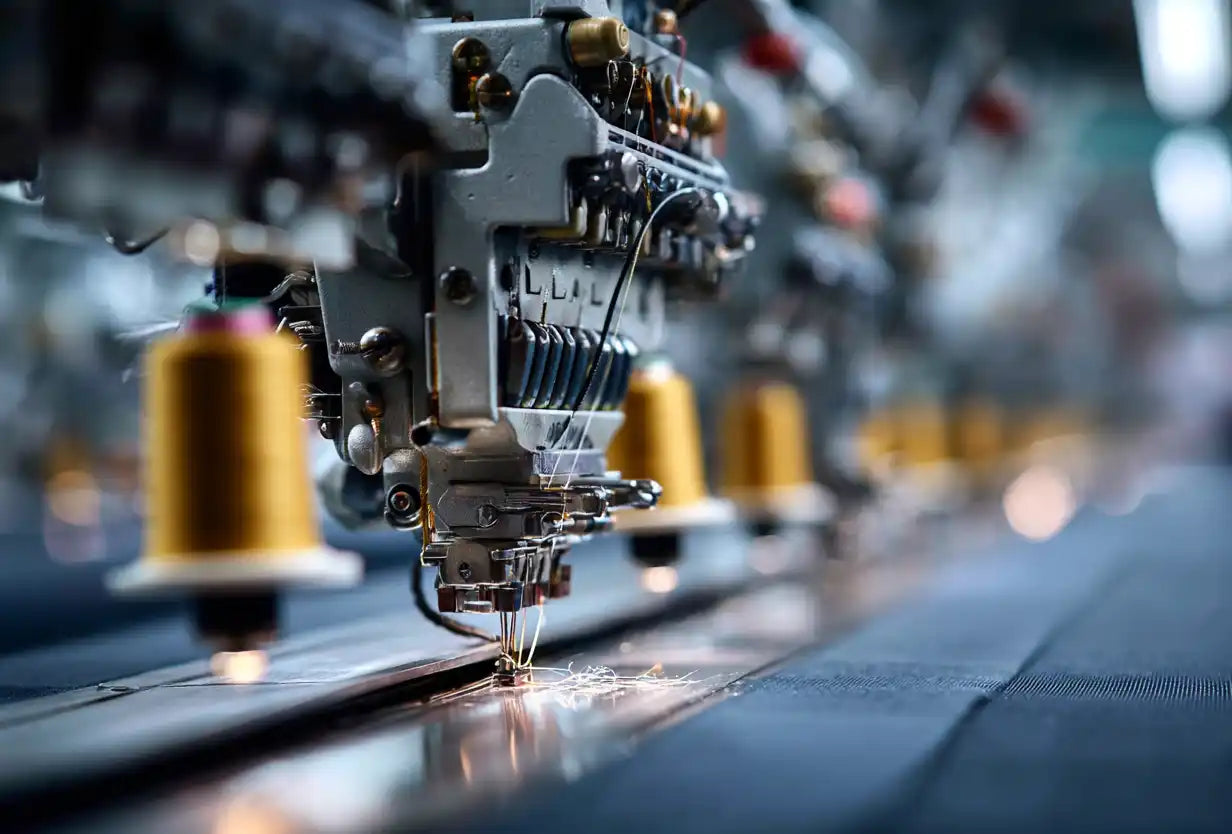
Worldwide Best Manufacturers of Clothes in 2025
Top clothing manufacturers worldwide organized by product type
LEARN MORE
